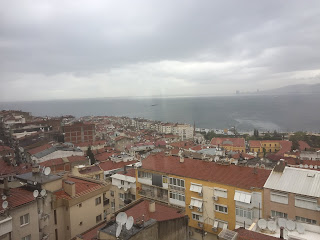I’ve been digging into old files on the laptop to try to find a hilarious piece describing a Schubert Symphony from a business cost-analysis viewpoint. Can’t find it (if any of you can, please send it to me!), but did uncover some interesting old pieces I wrote. Like my answer to this letter I received in 2009:
Dear sir,
I'm Jinky Jane, master student from UMS Malaysia. May I ask sir some opinion for my research? Teachers use to teach singing and sometimes with unpitched percussion in standard 1 to 3. I plan to design a module using Orff-Schulwerk approach on bamboo xylophone(pitch percussion instrument).
Can this research design as an experimental research with control group or treatment group? To investigate the effectiveness of the module on developmental rhythm aptitude and music aptitude. But I’m not sure if I will have a problem if the control group uses unpitched percussion and treatment group uses pitch percussion(to teach borduns, accompainment etc) + Orff-Schulwerk approach.
Can I compare the pre-test and post-test results?
Thanks
Yours sincerely,
Jinky Jane
And my answer: (I was going to keep the author anonymous, but with a name like Jinky Jane, I couldn’t resist including it!)
Hello Jinky Jane,
Thank you for your questions. I understand that sometimes research can yield interesting findings, but it is not my way of thinking about children and education. I find it distasteful to experiment on children when some simple common sense will tell us the answers we seek. I have taught children for 34 years and I can say with clear authority that we should not choose between singing, dancing, unpitched instrument playing and pitched instrument playing—each one gives children something different and each one is essential. And the most important things it gives to them cannot be measured as pre-test or post-test results— it is the communion with their classmates, their encounter with their own expressive possibilities, the faculties of their souls that are opened by each new piece of music, the way music class can put a frame around their joy and sadness and a thousand other things that art gives to us that scientific measurement cannot touch.
You don't need scientific testing to know that children who sing everyday guided by a teacher who loves to sing and knows how to choose repertoire, direct the group and train the vocal instrument will become better singers and grow to understand how melodies work. Children who play percussion, again with a teacher who knows how to play and communicate effective technique and share exciting pieces, will grow in their rhythmic skill and understanding. Children who play in the Orff ensemble, again guided by the knowledgeable and enthusiastic teacher, will grow in their understanding of ensemble playing, ensemble texture, orchestration and other essential musical skills. It would be cruel to have one group of children just do one of the above and another group something different just to prove the obvious. ALL children need constant, joyful and expertly-guided experiences in ALL aspects of music-making.
Note that in each of the above, the prepared and loving teacher is a necessary ingredient. My suggestion would be to abandon the proposed research and instead, do your own search as to your capabilities as a music teacher—get training, read, refine your teaching skills by watching the children in your classes and seeing how they react—if they are happy, enthusiastic, excited, motivated, you're on the right track. When they are not, it's your job to re-consider how to reframe your lesson. Having taught children from 3 years to 14 years old for so many years at one school, this is still the way I'm learning how to teach. With experience, you get better at it, but you never wholly arrive—every class is a new challenge and every child an invitation to figure out how to reach him or her.
I know this is not the answer you were hoping for, but it's the most honest one I can give.
Thanks for listening,
Doug Goodkin
I never heard back from her.
(Jinky Jane, if you’re there reading this, let’s talk!)



